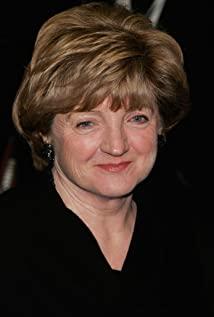This story is not about a mature woman’s sexual enthusiasm for teenagers, nor is it about an old Les’s unbelievable possession of young women who has been hidden for many years. The film adaptation highlights these aspects and makes the novel completely frivolous and fashionable. At the end of 2006, the British film "Scandal Notes" was adapted from the novel of the same name, written by Zoe Heller, a young London columnist. From novel to movie This novel is not a heavy and profound classic like "Recalling the Passing Years". It has all the relaxed and happy characteristics of a fashion reader. But the author is rigorous in writing, his works are well-behaved, smart and moving. Frankly speaking, compared to the vastness outside the universe, the human heart is equally vast and boundless. The art work often leads to these feelings and a little fur is enough to make people understand. The sigh of grimace is also under these dribs of stimulation. The advantage of the novel "Scandal Notes" is here. Soon after two days of reading, I can't help but wonder, why is it better than the "God of Tiny Things" translated in the same year? If I think "The God of the Small Things" is too "familiar" and "the same", isn't "Scandal Notes" from the subject matter to the writing method even more clichéd? The conclusion may be simple, because "The God of Micro Things" is writing and showing "form", and "Scandal Notes" is writing characters, so it is more moving and more direct.
If most of the viewers watched the movie first, like me, they would also "misunderstand" and ignore too many novel authors' efforts to express things. In fact, when the movie "Scandal Notes" was first watched, although it fell behind, it still has all the amiability of British small-cost movies: relatively conservative, relatively humorous, relatively simple, relatively tragic...that is, those who are overstretched relative to Hollywood Relaxation other than domineering style. But after reading the novel, I found out that all the problems were in the film's selection of the story.
The film adaptation takes a fancy to the two old-fashioned selling points of the novel story, "teacher-student love" (female teacher to male student) vs. "homosexuality" (older woman to young woman), each of these two points You can write the names of a row of movies of different colors in the back. One can tell at a glance that the "desire" that is prominent in the movie story. The ethics of the story revolves within this law. In this regard, the film emphasizes and rewrites the novel on the lens. For example, the female teacher Shiba and Connelly date alone for the first time. In the novel, the two have no sex, but the movie quickly allows the two to sleep on the grass. In the novel, until Shiba is honest and Barbara does not have sex. Did not face her indecent love directly. The movie allows Barbara to peep into the intense sex scenes between Sheba and Connelly. Connelly's teasing of Sheba in the movie will surprise the novel author. He directly said: Teacher, you are "technical." How about it? ——Although, after all, this movie is not a movie that sells sex like "Instinct", but the law of desire still runs through. In order to achieve this goal, the film has carried out the most significant rewrite of the novel clues, which is a bit annoying and ridiculous in my opinion, rewriting the first-person narrator Barbara as a lesbian. The movie did not write this directly. But all the hints include the prominence of the ending, making Barbara an out-and-out female hunter. The movie misinterpreted this image.
Is Barbara gay? Obviously, the director cannot understand Barbara's interest in Shiba. Those scheming and throbbing emotions, the thirsty plot that goes with them. All these emotions that female readers are very familiar with and understand, the director seems to have only seen the men and women in desire, and can only arrange the relationship between the two in this logic. As a result, a way of explaining homosexuality was produced.
Barbara in the novel is a complicated character. The author mainly used her to present the interpersonal relationship of loneliness and indifference. Barbara was born in a working-class family and had gangs with her parents. Her only sister is a religious fanatic. She is sensible, sober, harsh, and stern. She has read a lot of books in her long-term solitary life, and because of this, she has no objects to associate with in her own life class. This in turn formed her withdrawn and cynical personality.
Before meeting Shiba, Barbara faced the numb teachers and students around her with this face. In this public high school, which can’t afford private schools, the children of ordinary working class, most of the students are messing around. Ninety percent of them will work "at most" in service industries such as vendors in the future. The Shakespeare learned was thrown behind his head. Their parents are workers, rude and irritable-the novel emphasizes this kind of "class" issue in many places, implying that Barbara is one of these people, but also looks down on their inferiority. She refused to participate in the school's hypocritical activities such as teaching reform, and hated the vulgarity and ignorance of her peers-until Shiba appeared. "Before this, I had never known an upper class person, and Hiba was the first person of this class I knew." This point is constantly emphasized in the novel. Shiba comes from a family of senior intellectuals. This aspect highlights the reason Shiba can be friends with Barbara. In the context of education, they can communicate; in addition, she comes from another class. Barbara is eager to make friends with her because she is different, noble and mysterious. It is completely different from the environment in which Barbara lives. So to her family invitation, Barbara was secretly excited. Not only because of Shiba's cuteness, but also because of the superior attributes brought about by her birth, Barbara is curious about it. And the film completely narrows this plot, presenting it as a single possessive mentality based on sexual desire. Here, the film misappropriated and rewritten a plot of the novel: "Barbara's well-groomed dress".
If the viewer has read the novel, there will be no question of "Is Barbara gay?", because Barbara's careful preparation in the novel is to go on a date with a man. Barbara's betrayal of Shiba is also more understandable because of the disappointment and jealousy of the same woman. And the film appropriated it to Barbara's appointment with Shiba. ——In my opinion, the ridiculous thing about this rewriting is not only the director’s wishful misunderstanding of women’s emotions, but also the inability to understand and recognize the image of Barbara, and he has no or refuses to sympathize with them. The heart is watching and dealing with this character-this image becomes a completely flat "lonely old virgin monster", weird and perverted. It can only be said that the director may deliberately misinterpret or fail to recognize the mentality of single women in a certain solitary situation. Such loneliness not only points to sex, but also points to all pervasive emotions, such as friends and family.
The law of desire and male thinking are also under this male-centered thinking. The frustration of the "two desperate hearts" at the end of the novel's horrible style is rewritten as the "return" confession of the derailed woman in the film; in the "recognition" Sheba, who was under Barbara's "ugly" face, completely broke off relations with Barbara and returned to her kind old husband. ——An idea that is more in line with the "mainstream of society".
Based on the understanding of free adaptation, I can agree with all film adaptations of the original work. It's just that this time "so ingenious"-all the subtle and major adaptations are just right to serve a male thinking and expression. This male way of thinking allows all complex emotions to serve the superficial desire expression, so the film is better sold, "easy to understand", but also frivolous. Many of the performances of Kezi in the novel have been erased. For example, Barbara secretly pleaded guilty for Shiba after the Shiba incident. She pointed out that when the British crown prince married a 19-year-old girl, she celebrated the whole country, and Shiba’s affairs were so disgusting. Is this fair? Is there really that much difference between the 50s and the 40s, and the 19 and 16 years old? What can't be erased is Shiba's simple and subtle experience, "His body is a new toy, and the attitude of adults to the body is indifferent, he has not learned." And Shiba's courage alone.
The movie "Scandal Notes" is naturally established, and it is also a successful rewrite in terms of the presentation of the film. But from the perspective of the intention of the complex emotions between people that the novel hopes to present, this adaptation has a tendency to deliberately misread and singularize and commoditize. Supplement: Regarding the heroine's name Sheba in "Scandal Notes", the author chose the origin: Makeda (Queen of Sheba) is the queen of Ethiopia in eastern Africa BC. Her power in Africa, at its strongest, covers the entire East Africa. According to the records of Chapter 10 of the First Kings of the Old Testament, the Quran, and other historical materials, she admired the talent and wisdom of Solomon, the king of Israel at that time, and went to Israel to propose marriage to Solomon at all costs. King Solomon also committed adultery with her (because he already had a wife), and was abandoned by God, and opened the prelude to the decline of the Kingdom of Israel. When the Queen of Sheba was driven back to Ethiopia by the Israelis, she was said to have had the flesh and blood of King Roma. The local language of Ethiopia is also surprisingly similar to ancient Hebrew. In addition, the ark of the covenant stored in the temple in Jerusalem mysteriously disappeared after the Roman Empire army slaughtered the city. It is said that King Solomon’s descendants in Ethiopia secretly transported the ark from Jerusalem to Ethiopia for collection. The official history and the unhistorical history of these fragments have more or less confirmed the extraordinary relationship between the Queen of Sheba and King Solomon. Some people also believe that the Song of Songs is a love word between King Solomon and the Queen of Sheba, based on a sentence in the first chapter 5 of the Song of Songs. May 11, 2007 in Beijing
View more about Notes on a Scandal reviews











